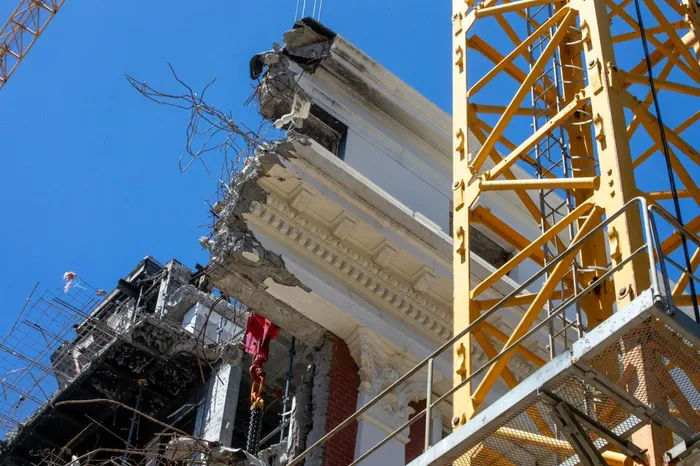How South Africa's R1 trillion infrastructure plan aims to transform the economy and job market

A new report by McKinsey, The infrastructure moment, forecasts that R1.822 trillion could be invested by 2040.
Image: Zwelethemba Kostile/Parliament
South Africa’s R1 trillion infrastructure plan could help give the economy the boost it urgently needs.
Finance Minister Enoch Godongwana said during the most recent budget speech that government’s fiscal plan will direct more resources to infrastructure.
“We will ensure that our goal of public sector investment in infrastructure exceeds the R1 trillion mark over the next three years,” said Godongwana.
Michelle Green, credit analyst and chairman of the ESG Committee at Prescient Investment Management, said if this “bold ambition” is realised, it “will translate into a series of transformative projects”.
Green noted that these projects will be across energy, water, student housing, internet infrastructure and logistics hubs.
Godongwana told Parliament that government will push for private investment through public:private partnerships.
“We are leveraging public resources to mobilise private finance and expertise at scale to strengthen service delivery, improve spending effectiveness and drive higher economic growth,” said Godongwana.
Yet, “the trick will be creating an enabling environment for investors to participate,” said Green.
A new report by McKinsey, The infrastructure moment, forecasts that R1.822 trillion could be invested by 2040.
Green said this matters because Prescient’s analysis shows that “a one percentage point increase in infrastructure investment as a share of gross domestic product (GDP) is correlated with a 1.242 percentage point increase in GDP growth rates”.
Godongwana has predicted 1.2% GDP growth for this year after an abysmal 0.6% gain in 2024.
Yet, Green warned that there are structural problems that must be fixed for the market to succeed.
“A key determinant of success will be creating an enabling environment for public-private sector collaboration,” she said.
Dr Ernst van Biljon, head lecturer of Supply Chain Management at the IMM Graduate School, said logistics remains a weak link.
Although reforms at Transnet are under way, “freight rail and port systems are operating at less than 50% efficiency in key corridors, eroding export competitiveness,” said Van Biljon.
Green added that capital deployment is changing too.
“The deployment of capital is increasingly being measured against environmental, social, and governance aspects, UN Sustainable Development Goal (SDG) and impact frameworks – all of which continue to evolve and mature as the industry develops more sophisticated measurement approaches,” said Green.
Green urged that lessons be taken from the Renewable Energy Independent Power Producer Procurement Programme “to emulate these successes across markets including logistics, water, student accommodation and other areas where the country is crying out for investment capital.”
The programme’s development, she said, provides a template for scaling projects in areas “where the country is crying out for investment capital”.
Official figures show public-sector infrastructure spending is on the rise.
Statistics South Africa said government infrastructure spending reached R276 billion in 2024, up from R234 billion in 2023.
That is an 18% increase and follows a five-year downturn that began in 2016.
BUSINESS REPORT